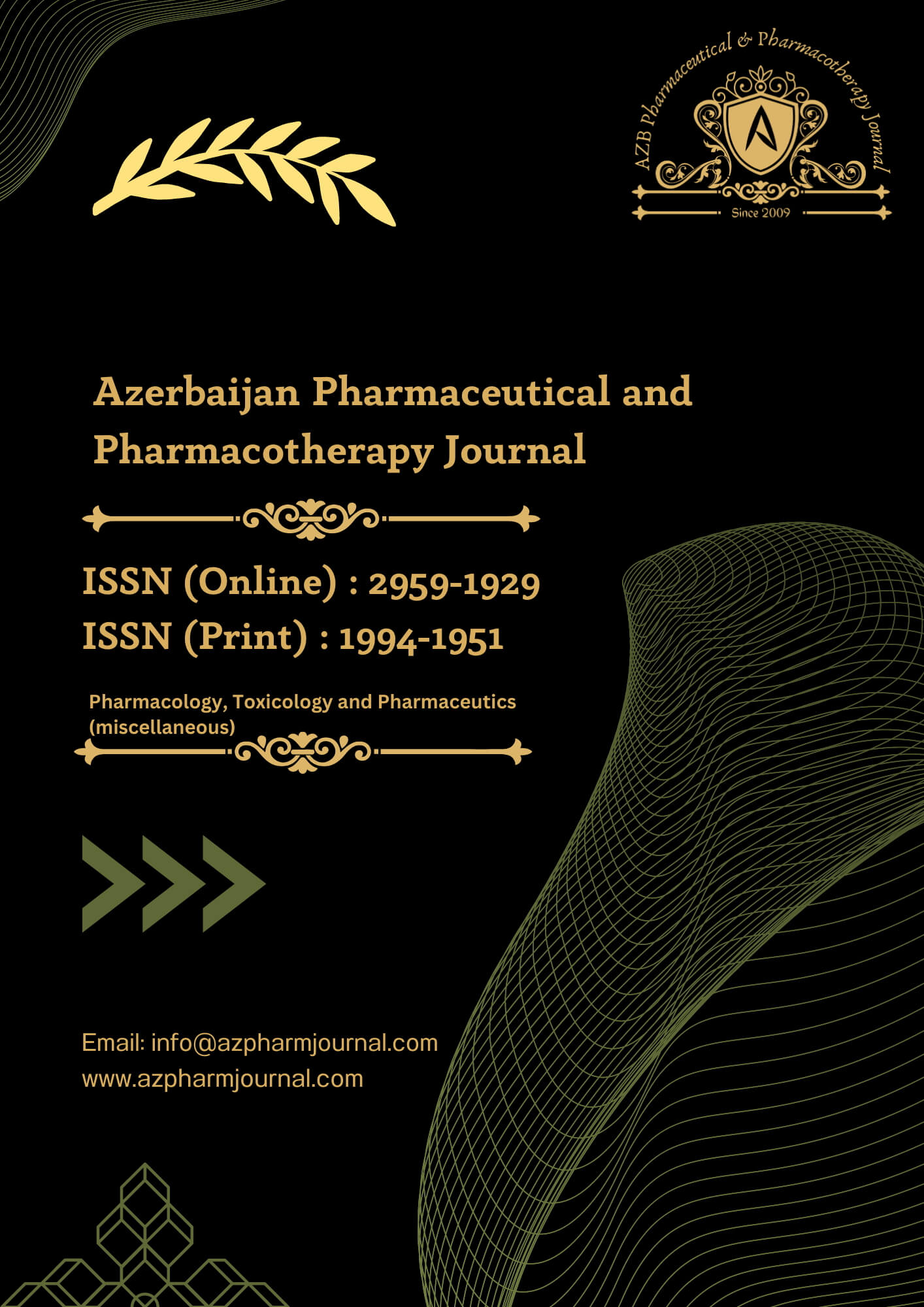Open Access
Azerbaijan Pharmaceutical and Pharmacotherapy Journal is committed to open access publishing, which means that all articles published in our journal are freely available worldwide. Here’s what open access entails:
- Free Access: Everyone has unrestricted access to the full-text of all articles published in Azerbaijan Pharmaceutical and Pharmacotherapy Journal.
- Reuse Permissions: Readers are free to reuse the published material as long as proper accreditation or citation to the original publication is provided.
-
Article Processing Charge (APC): To support open access publication, authors’ institutes or research funding agencies cover a comparatively low APC for accepted articles. This charge helps cover costs like peer review, copyediting, typesetting, long-term archiving, and journal management.
Permissions:
No special permission is required to reuse any part of an article, including figures and tables, published by Azerbaijan Pharmaceutical and Pharmacotherapy Journal. For articles published under a Creative Commons CC BY license, any part of the article can be reused without permission, provided the original article is properly cited. Please note that reuse of an article does not imply endorsement by the authors or our journal.
External Open Access Resources:
If you’re new to the concept of open access, you may find the following websites:
- Wikipedia article on Open Access
- Open Access Network
Meaning of Open Access:
In line with the Budapest, Berlin, and Bethesda declarations, Azerbaijan Pharmaceutical and Pharmacotherapy Journal defines open access based on the following conditions:
- Peer-reviewed literature is freely available without subscription or price barriers.
- Published literature is immediately accessible in open access format, without any embargo period.
- The published material can be reused without permission, as long as the original publication is correctly cited.
Advantages of Open Access for Authors:
Open access offers several benefits for authors, including:
- High Availability and Visibility: Our open access articles are freely accessible to anyone with an internet connection. This increased accessibility enhances the visibility and reach of your research.
- Higher Citation Impact: Open access articles tend to receive more citations due to their wider availability and visibility among researchers.
- Lower Publishing Costs: Open access publishers charge authors’ institutes or research funding agencies to cover the costs of editorial handling and editing. The article processing charge (APC) is typically lower than what traditional subscription-based publishers charge. Our APC is the same for all article lengths, encouraging the publication of comprehensive papers.
- Faster Publication: Online-only availability enables us to publish accepted articles more quickly than traditional printed journals.
Azerbaijan Pharmaceutical and Pharmacotherapy Journal believes that open access fosters collaboration, interdisciplinary research, and worldwide access to research results. We consider open access to be an enriching part of the scholarly communication process, co-existing with other forms of communication and publication.
Important Note: Some articles, especially reviews, may include figures, tables, or text from other publications, for which our journal does not hold the copyright or right to re-license. Please contact the original copyright holder (usually the original publisher or authors) to inquire about reuse permissions.
We appreciate your support and contributions to open access publishing, as it advances knowledge sharing and accessibility in the field of pharmaceutical and pharmacotherapy.
Archiving
Between the years 2001 and 2021, the journal predominantly disseminated its content in printed form, exclusively in the Azerbaijani language, with archival support provided by the Scientific Electronic Library elibrary.ru, recognized as the largest Russian information portal. Commencing in 2023 and extending onwards, the journal has transitioned to an Open Access online publishing model. Consequently, all published content will be accessible through the journal's dedicated online platform, which will serve as the primary archival repository for the scholarly articles and research outputs.
